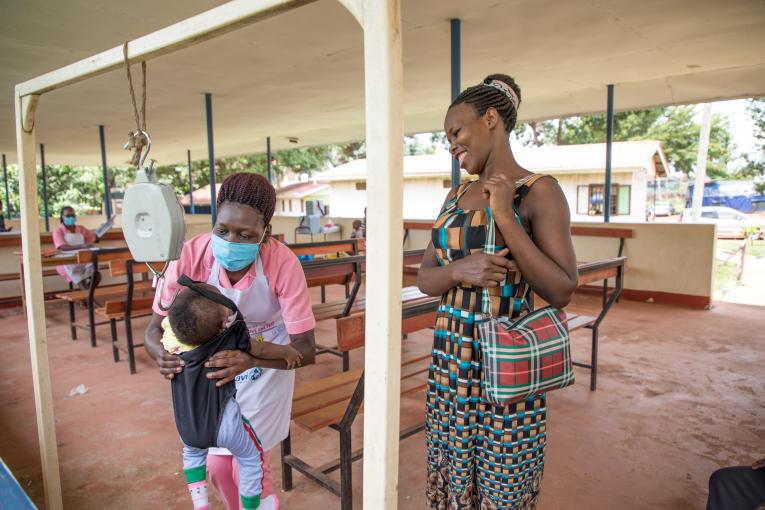
As the number of COVID-19 cases increase in Uganda, so do the needs of children and their families. The most vulnerable children – such as those affected by poverty, exclusion or family violence – are facing even greater risks.
“UNICEF is deeply concerned about the impacts of the pandemic and containment measures on children and is calling on partners to help mitigate them. Children are the hidden victims of COVID-19,” said Dr. Doreen Mulenga, UNICEF Representative in Uganda.
Mulenga added, “Children are less likely to get sick from the virus, but we must act now so they will not be bearing the brunt of the long-term impacts of this crisis”. As the global situation evolves, UNICEF continues to support the Government of Uganda in preventing and containing COVID-19 while taking this opportunity to build back better.
In navigating this daunting situation, the United Nations Children’s Fund wishes to congratulate the Government of Uganda for its exemplary leadership in managing the COVID-19 response.
UNICEF is a proud partner that continues to support the Government to keep children healthy and well-nourished; to reach families with clean water and sanitation; to keep children learning from their homes; to protect children from violence, abuse and exploitation; and to support refugee children and host communities.
UNICEF’s support, which is aligned with the National COVID-19 Response Plan, comes in the form of financial, material, supplies, and technical contributions to the Government of Uganda and partner organizations.
Within the education sector, UNICEF is actively supporting the Ministry of Education and Sports with distance learning opportunities for children who cannot access school. The agency continues to be involved in the provision of mental health and psychosocial support to children and families who have been directly affected by COVID-19 and ensure that parents have access to knowledge and information around parenting and child protection concerns in the context of COVID-19.
With the aim of increasing awareness about the pandemic and prevent further spread, UNICEF is supporting the production, procurement and distribution of nearly three million information, education and communication materials through audio mobile vans, along with the airing of radio spots and talk shows in 30 local languages.
UNICEF is also supplying nearly 12,000 pieces of Personal Protective Equipment (masks, gloves, and boots) to support health workers in various districts throughout the country. UNICEF has supplied soap, hand-washing facilities, and some 17,000 kg of chlorine to be used in 17 regional referral hospitals and health facilities for infection control.
The costs of the pandemic for children are immediate and, if unaddressed, may persist throughout their lives. “But they are also things we can fix,” underlined Dr. Mulenga. “By working together, we can ensure COVID-19 does not threaten social and economic development for a long time to come and help make families and communities more resilient. This starts with resisting the temptation to deprioritize investment in our future. In fact, we must do the opposite – taking this opportunity to build back better; investments in education, child protection, health and nutrition, and water and sanitation will reduce the damage caused by COVID-19 and avoid future crises,” she explained.
As an organization funded entirely by voluntary donations, UNICEF relies on support from the private sector as a core source of income. During emergencies, that need is even greater and more urgent.
UNICEF is grateful for the generous support of donors and partners and hopes to mobilize additional resources of US$ 15 million to slow the spread of COVID-19 and minimize its impact on children while supporting children’s access to learning, health, nutrition, and protection services during this unprecedented time.
COVID-19 anywhere is a threat to people everywhere – so UNICEF stands united, with one clear promise to all people in Uganda: we will get through this together, for every child.




